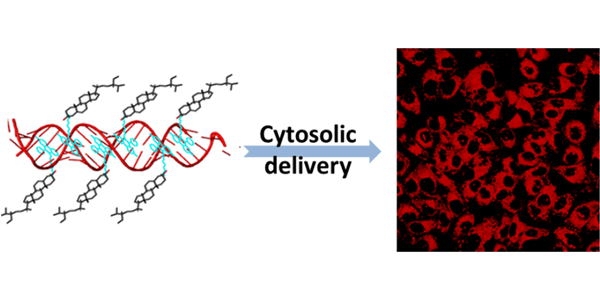Noncovalent tagging of siRNA with steroids for transmembrane delivery
Wanyi Tai and Xiaohu Gao. Biomaterials. Available online 3 February 2018.
Abstract
Short interfering RNA (siRNA) has broad applications in biology and medicine, and holds tremendous potential to become a new class of therapeutics for many diseases. As a highly anionic macrobiomolecule, its cytosolic delivery, however, has been a major roadblock in translation. Here, we report the development of small, bifunctional chemical tags capable of transporting siRNA directly into the cytosol. The bifunctional tags consist of a siRNA-binding moiety that interacts with siRNA non-covalently, and a steroid domain that readily fuses with the mammalian cell membrane. In contrast to the conventional covalently conjugated siRNA-steroid that enters cells largely via endocytosis which substantially limits siRNA bioavailability, the non-covalently tagged siRNA is cell membrane-permeant, avoiding the endocytic pathway. This new methodology enables effective RNA interference (RNAi) without the need of cationic transfection or endosomolytic agents, opening a new avenue for intracellular delivery of native biologics.


